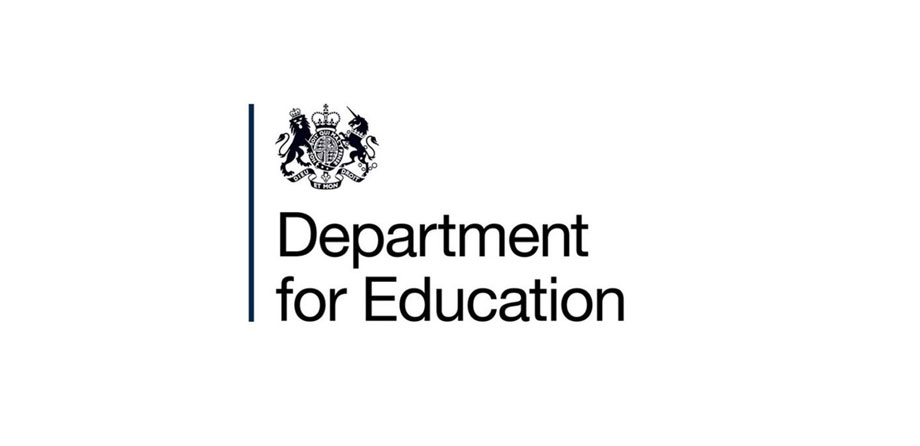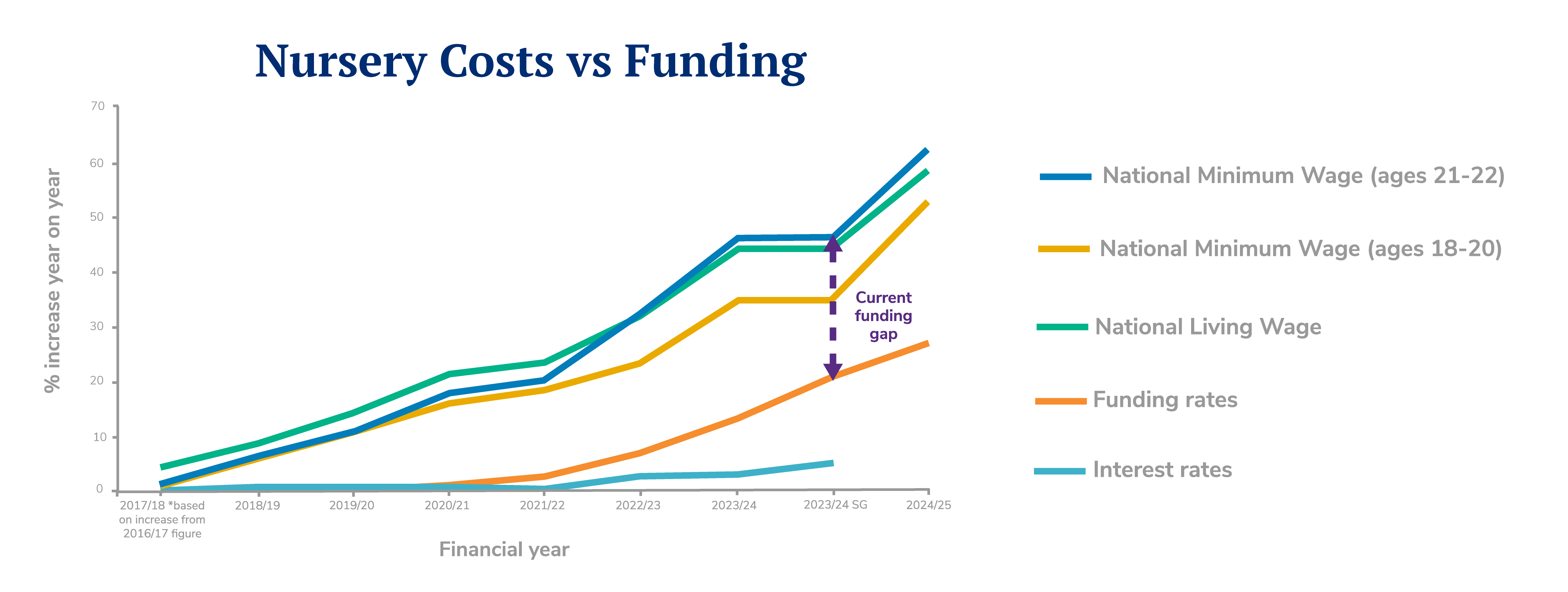
Funding rates 2024-25: Average rate increase lower than wages rise
The Government has announced the funding rates from April 2024-25 and also set out its response to the funding consultation regarding two-year-old places.
Parents can apply for a 15-hour place for their two-year-old from 2 January, which the Government describes as: “the first step in the government’s long-term plan to give working families a brighter future.”
The average funding rate for three and four-year-olds – which has the most impact on nurseries as there are ten times more funded three and four-year-olds currently – will increase by 4.6%. From April the National Living Wage will rise by around 10%.
In real terms, the funding rates have increased by 27% since 2017 but wages have risen by 58 – 62%.

DfE has provided average funding rates to local authorities which will be:
- Three and four-year-olds – £5.88 (currently £5.62) = up by 26p 4.6%
- Two-year-olds – £8.28 (currently £7.95) = up by 33p 4%
- Under twos – £11.22.
These are rates to local authorities who can top-slice up to 5% of this amount. Some also pay supplements so some providers could receive only the base rate, which can be much less than 95% of the total.
NDNA has looked at the actual rates that will be paid to councils for three and four-year-olds:
- 46 LAs mostly in the north will be on the lowest rate of £5.47 which means their base rate will be around £5 or just above
- Bristol on £5.97 has the lowest increase of just 11p or 1.9%
- Kensington and Chelsea’s rate £8.60 has also only been increased by 1.9%
- Camden has the highest rate of £9.04.
For two-year-olds, the picture is different, with many rates being reduced before any top slicing from local authorities even takes place:
- 68 local authority areas will receive less than £8 per child per hour which means that providers in these areas will receive less than the average base rate they currently get of £7.99
- Rutland council is on the lowest rate of £6.98, a 30p reduction
- 26 local authority areas will have a reduction of funding from 1p less to 30p less
- 72 local authority areas will not receive the average increase of 33p or more
- Three council areas have no change to their funding
Purnima Tanuku OBE, Chief Executive of National Day Nurseries Association (NDNA) said:
“The Government has promised more funded childcare for parents but today’s announcement shows they are not serious about paying a fair rate for high-quality early education and care.
“Their own policies of raising the national living and minimum wages will increase costs by at least 10%. Increasing rates by less than 5% only adds up to more early years settings closing and certainly will not help employers recruit and retain more talented people that our sector desperately needs.
“At the same time the Early Years Pupil Premium, designed to support children from more disadvantaged backgrounds, will only rise by 2p per hour or just over £11 a year. These children have the most to gain from access to early education and care places but this will not allow providers to make the kind of impact they want.
“Parents rightly want to plan for the new offer and make arrangements with nurseries. However, until local authorities tell providers their funding for next year it will be impossible to decide how they will be able to offer these promised places.
“The early years funding system is too complex for parents, providers and councils leading to underspends and parents not taking up all the support they are entitled to. This is a missed opportunity to fix to some of the major challenges in the early years ahead of the planned expansion of funded childcare.”
Rates for under twos – which begin from September 2024 when children with working parents who turn nine months old in the previous term will be eligible – are more generous:
- Lowest rate £9.45 (Rutland) rising to £16.21 in Westminster
- 77 local authority areas will have funding rates below £11.
Useful links:
- Download the new three and four-year-old rate by region (.xlsx)
- Download the new two-year-old rate by region (.xlsx)
- Here are all the new rates published by DfE
- The DfE has also published operational guidance which now means that councils can apply the 95% pass-through rate to all two-year-old entitlements
- DfE Easy Explainer: Early Years Funding Rates (Pdf).
- England
Similar Articles
Maths confidence soars as three early years settings complete NDNA’s Maths Champions programme

Government guidance could put nursery children and staff at risk


